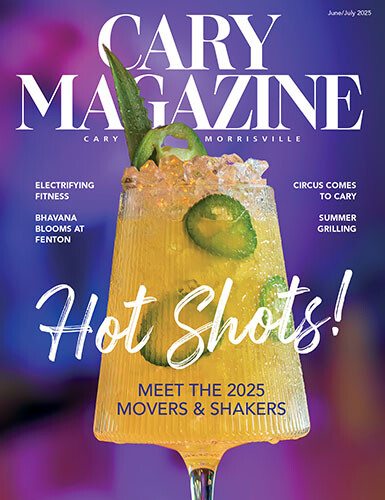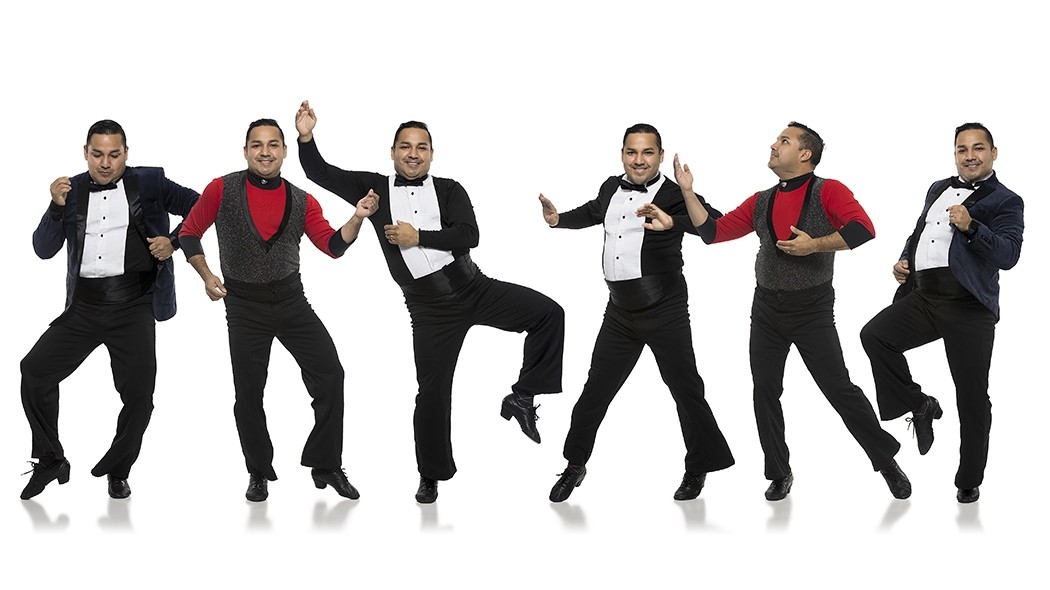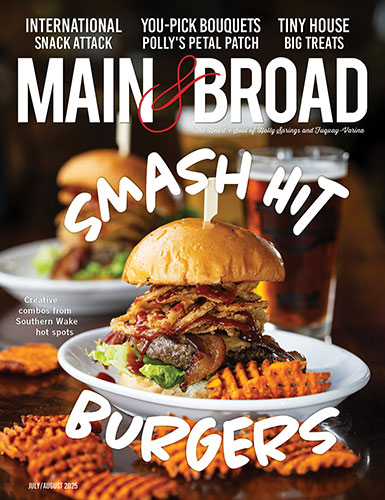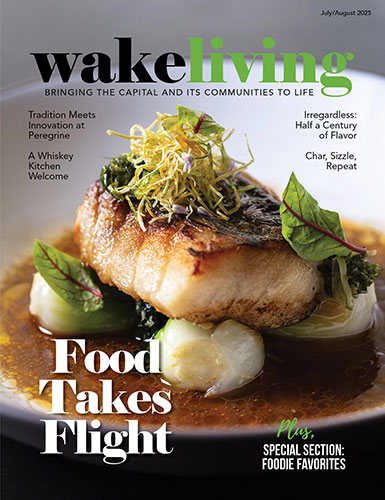When Norberto “Betto” Herrera listens to contemporary pop music, he hears the echoes of ancient rhythms.
With roots in Latin America, the Caribbean and Africa, these rhythms are everywhere, he says, if you know what to listen for. Take for instance, the clave, traditionally played on two sticks.
“Have you heard of ‘Faith’ by George Michael? So, the rhythm on the guitar in ‘Faith,’ is the clave,” said Herrera, a professional dance instructor and founder of the Mambo Dinamico Dance Company.
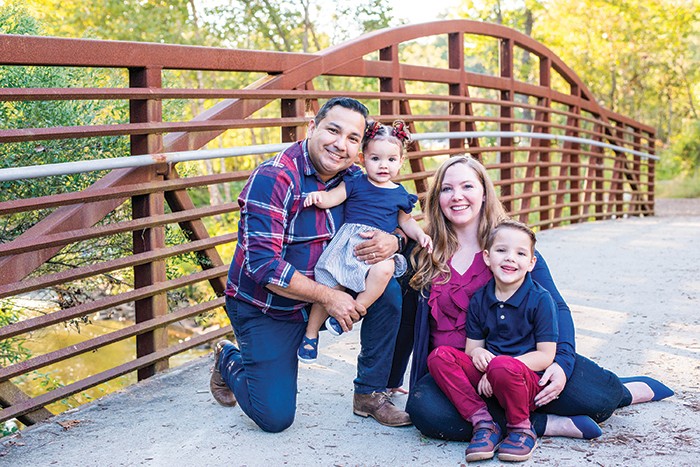
Betto and Jenny Herrera live in Apex with their children Luna and Cruz. With his dance lessons canceled because of the pandemic, Herrera has been substitute teaching at his son’s elementary school. Contributed photo by Adrienne Reich.
“I make it sound like this — toothbrush-brush-my-teeth, toothbrush-brush-my-teeth. I used to teach first grade, so I tried to explain things, as if I was teaching first-graders, so everybody could understand it.”
Since 2004, when he started holding Salsa classes at Carmen’s Cuban Cafe in Morrisville, Herrera has always taught more than pretty steps and turns. In his classes, pop music references, stories from Salsa’s heyday in the ’60s and ’70s, Cuban big band music, folktales from the Caribbean and Africa, are all woven together.
Listen in as Amber Keister chats with Betto Herrera on the Peak City Podcast, at peakcitypodcast.com/podcast.
Last summer, his passion for cultural awareness took on greater resonance.
“In the pandemic, when the Black Lives Matter movement started to happen, there was like this ‘woke’ sensation,” said Herrera, who lives in Apex. “People started seeing the importance of the work that we have been doing for so long.”
With his classes canceled because of COVID, Herrera put together a dozen or so webinars, tracing the history and cultural traditions of Latin dance and music. Fellow dance professionals and his students tuned in, but he was also able to reach a wider audience. During one virtual program, he spoke with a group of human resource professionals from the North Carolina Office of Human Resources.
“They wanted to understand the importance of Latin culture, here in America. How Latin culture has impacted America,” Herrera said.
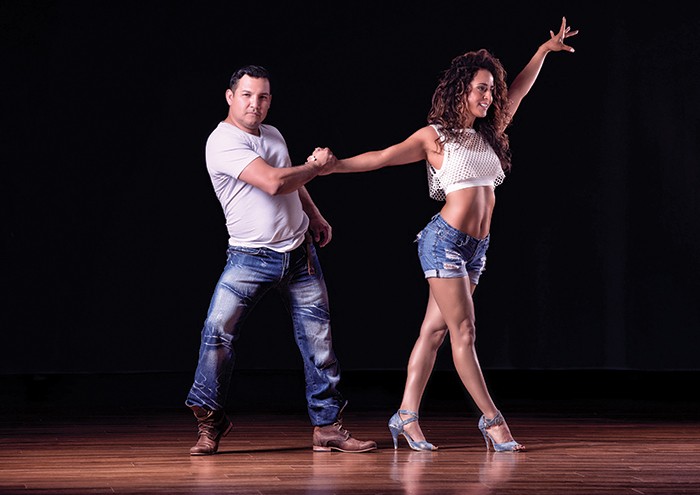
Betto Herrera performs with dance partner Annie Velez. The dance company he founded, Mambo Dinamico, has performed throughout the state and beyond. Contributed photo by John Spectre.
To engage these non-musical audiences, he describes Latin percussion elements in “Little Darlin,” sung famously by Elvis Presley, songs from The Jackson Five, the Temptations, Marvin Gaye, and even the theme from Sylvester Stallone’s “Rocky” movies.
“It’s been there the whole time,” Herrera said. “We have been connected the whole time, we just didn’t know it.”
The webinars are just the latest among his many outreach efforts over the years. Herrera has spoken to veterans at the VA hospitals in Durham and Fayetteville, created educational programs for schools, sponsored performances across the state, and recently co-founded AALDA, the African and Afro-Latin Dance Association, to address inequities and promote diversity in the dance community.
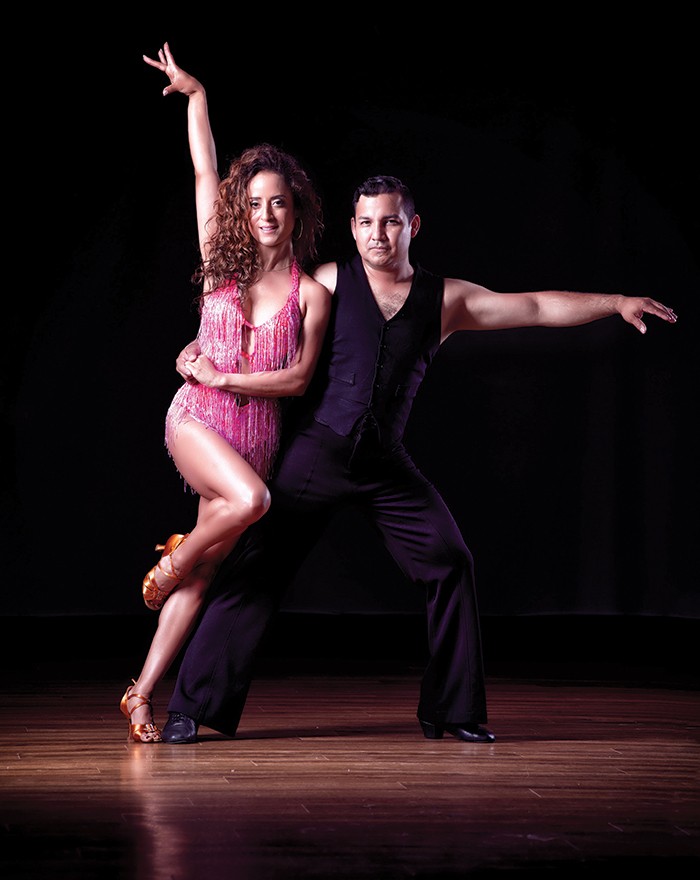
Contributed photo by John Spectre.
In November 2020, Herrera was honored for his many contributions to the arts and culture of North Carolina at the 25th Latino Diamante Awards, which are administered by the arts-focused nonprofit Diamante.
“It’s a well-deserved award, and I’m so happy for Betto,” said Dr. David Garcia, professor of music at UNC-Chapel Hill. “He’s made a tremendous impact on the teaching and education of Latin dance here in the Research Triangle area.”
The two men have been friends for many years, united over a common heritage and love of music. Garcia’s parents are from Ecuador; Herrera himself was born there. Garcia’s student band, Charanga Carolina, would play at events where Mambo Dinamico dancers would perform. Garcia, whose specialty is ethnomusicology, would also point Herrera toward information on topics he was researching.
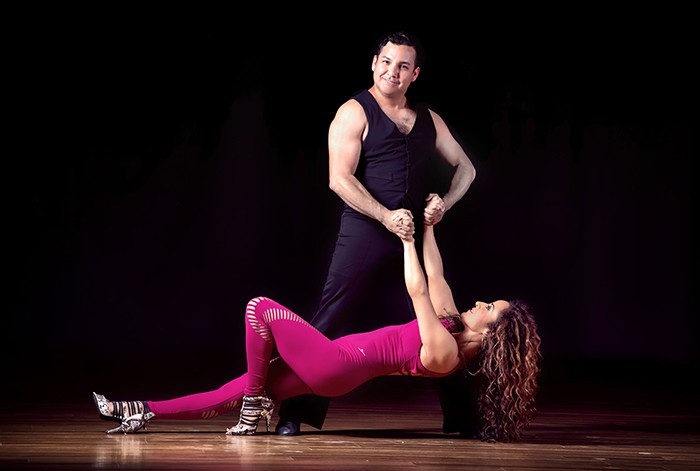
Contributed photo by John Spectre.
“With a dance like Salsa, being very popular across racial and ethnic groups, … the histories of these popular dances can often be overlooked in their significance, especially when these dance traditions are of groups of people who have historically been marginalized or oppressed,” Garcia said.
“To Betto’s credit, he always makes sure that in addition to teaching his students the actual dances, he also teaches them about where all of this comes from and the groups of people that created these traditions.”
Betto Herrera and Dr. David Garcia collaborated on a music video in May 2020, a compilation with Charanga Carolina and dancers from Mambo Dinamico.
Herrera’s curiosity has taken him through the history of Latin and Afro-Caribbean dance, but also through his own family history. One of his great-grandmothers was of indigenous heritage; another was a Chinese immigrant who settled in Peru. From looking at old photos, he says it was obvious that his forebears were also of European and African descent.
“I have blood from everywhere. I’m like a United Nations on feet,” said Herrera, who eventually took a DNA test to satisfy his curiosity.
“There’s always been a calling for me to find out about the music, about the culture, but in a sense, I’ve always been trying to find out about myself.”
For now, he’s back in the classroom teaching elementary age children, as a substitute teacher for the Wake County Public Schools. While he appreciates the income, he misses the dancing and the work that has propelled him for more than 15 years.
“Just moving itself, it makes you feel that you’re alive, you know?”
- Rhythm and Clues
- Road Trip to Pinehurst Leads to More Than Golf
- A View of North Carolina’s Historic Lighthouses
- The Arts Shine in Downtown Sanford
- Nonprofit Spotlight: Chinese American Friendship Association
- Big Little Gardens
- Small Business Spotlight: Campbell Road Nursery
- Garden Adventurer: A Tale of Two Pretties
- Worth the Drive: Saxapahaw General Store
- Liquid Assets: Octo Pils from Vicious Fishes Brewery
- Liquid Assets: Grateful Dead from Mellow Mushroom
- Liquid Assets: 3 Day Vacay!
